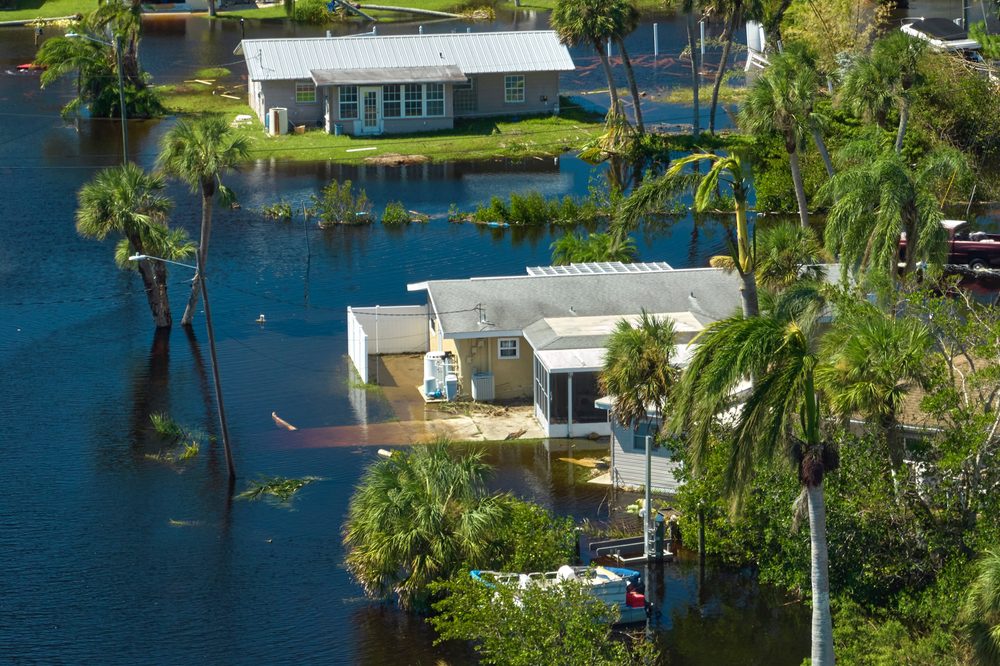
Living in Florida is expensive, especially if you’re in your golden years…
Florida can be a wonderful destination for retirement, depending on your budget. Known for its sunny beaches, beautiful weather, and vibrant retiree communities, the Sunshine State has often been considered the mecca for where to relocate when you retire. That is, until now, as the state is experiencing a surprising trend: seniors are leaving in droves.
The reason? Living in Florida is expensive. Its cost of living has skyrocketed, making it unaffordable for many. So, if you’ve been thinking of moving there in your golden years, you may want to reconsider.
Here are some things that have become expensive in the Sunshine State, prompting retirees to seek out more budget-friendly places.

1. Housing costs
One of the main reasons why living in Florida is expensive right now is because of the high housing costs. In fact, that’s the most significant expense driving seniors away.
Many states have watched their housing prices go up over the past two years, but none have seen an explosion in housing prices the way Florida has. The Sunshine State’s real estate market has experienced dramatic price increases, especially in popular destinations for retirees like Orlando, Miami, and Tampa.
Both rental rates and property values have surged, with some areas seeing double-digit percentage increases in just twelve months. For seniors on fixed incomes, these costs are simply untenable, and most in this situation agree that living in Florida is expensive.
2. Utility bills
While Floridians save money in the winter months since they rarely turn on the heat, their air conditioners are running 24/7 during the summer because of the state’s hot and humid climate. The AC isn’t just a luxury there but a necessity, which is another reason why living in Florida is expensive.
This results in outrageous electricity bills, particularly during the sweltering summer months. Moreover, sewer and water rates in many Florida cities are higher compared to the national average, further straining seniors’ budgets.
There are a few reasons why utility rates have gone up drastically in the past few years. For one, the cost of fuel has skyrocketed. The Sunshine State uses natural gas to produce most of its electricity, and it has to buy it from abroad.
Natural gas has become considerably more expensive due to the war in Ukraine and the COVID-19 pandemic. In turn, electricity prices have increased, and, right now, for most retirees, living in Florida is expensive.
3. Healthcare expenses
As you get older, chances are you’ll start participating in Medicare to help cover your healthcare bills, doctor visits, and prescriptions. That’s another reason why living in Florida is expensive.
The Sunshine State boasts many excellent medical facilities where patients can receive top-quality care. When it comes to retirees, healthcare is a critical concern, and in Florida, it’s getting increasingly costly.
Medical care isn’t cheap in the US, but here, it costs those on a fixed income a lot more money. While Medicare does cover most of these expenses for seniors over 65, there may still be out-of-pocket costs.
These include premiums, co-pays, and deductibles. There are also costs like dental care, vision care, and long-term care that are usually not covered, depleting further retirement savings.

4. Insurance premiums
Another reason why retirees agree that living in Florida is expensive is because of the skyrocketing insurance premiums. Personal finance experts point out that, in addition to inflation, increasing costs of living, and housing prices in the Sunshine State, seniors are also leaving for other reasons: higher auto and home insurance.
According to recent data, the average $400,000 Florida house costs at least $3,005 to cover each year, or around $250 per month. Moreover, the state’s susceptibility to floods and hurricanes makes it a high-risk area for natural catastrophes, driving up the cost of home insurance.
For example, houses with government-backed mortgages in these areas are required to have flood insurance. It isn’t required by law if you have a mortgage from a private lender, but they may still ask for it. The average cost of flood insurance in the Sunshine State is a bit over $600.
Living in Florida is expensive, and some retirees living here say their insurance premiums have even doubled, making it hard to maintain comprehensive coverage on a fixed income.
Read on to discover other reasons why living in Florida is expensive!
5. Grocery prices
Living in Florida is expensive when it comes to grocery prices, too. Shoppers nationwide know it costs more to fill up a grocery cart these days. But in the Sunshine State, inflation is causing food prices to go up faster here than in any other place in the country, according to a new report.
Grocery costs spiked by 6.4% in the last year, the report also stated. Metro Orlando is ranked in the top six among grocery increases, averaging a hike of 6.5% in the last 12 months. Moreover, the Orlando raise is at least twice the hike in San Diego, California, or Richmond, Virginia.
One shopper living in Sanford, Florida, says she has seen an increase in prices, sometimes by $1 and other times by more than the buck.
Another reason why living in Florida is expensive is because, being a peninsula, many products must be transported there. This, more often than not, adds to their cost. Goods like dairy, meat, and fresh produce are particularly affected.
Seniors, who once loved the idea of having grocery stores nearby, now find themselves budgeting more carefully to afford the basics.

6. Entertainment and leisure
Seniors often look forward to enjoying leisure activities in their retirement years, but in Florida, these, too, are in most cases a luxury. So having fun here may cost you a bit more than you’d expect.
Let’s take theme parks as an example. When it comes to them, the Sunshine State is like the major leagues, but those ticket prices? They’re also hitting some runs, but not in the way your wallet would like. For instance, in 2023, ticket prices at Disney World start at $109 per person and can be as high as $189. And that’s before the 6.5% sales tax and any add-ons.
Universal Orlando has bumped up their prices too, with a 1-day ticket starting at $119 plus tax.
Living in Florida is expensive even if you don’t go to theme parks; other leisure activities, from golf courses to cinemas and dining out, aren’t immune to price hikes either.
7. Transportation costs
Public transportation in the Sunshine State can be hit-or-miss or even nonexistent, so having your car is pretty much a must. However, while this comes with the convenience of going to the beach whenever you feel like it, it also comes with a price attached, and it’s not a small one. Yes, living in Florida is also expensive because of its high transportation costs.
According to the latest data, when it comes to car ownership, Florida is one of the most expensive states in the country, with costs hitting about $25,565 over five years. The Sunshine State is known for having insurance rates that are higher than the national average.
And don’t forget about the other costs like registration, licensing, and other taxes. Personal finance experts say the average car owner will cough up around $762 in 2023 for these essentials.
In other words, owning a car in Florida means you’re looking at a significant financial commitment.
Retirement planning is extremely important if you want to enjoy your golden years. Here’s a guidebook that can help you with your retirement decisions.
If you liked our article on why living in Florida is expensive, you may also want to read These 8 East Coast States Are the Best Places to Retire in The U.S.










